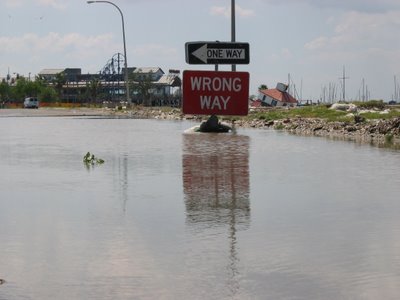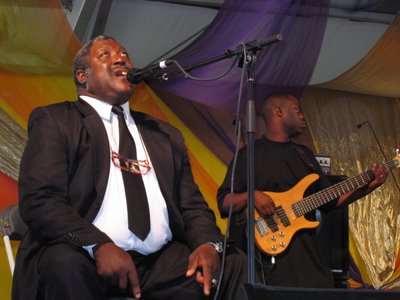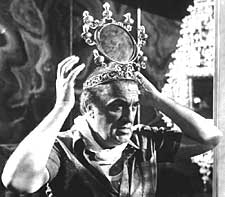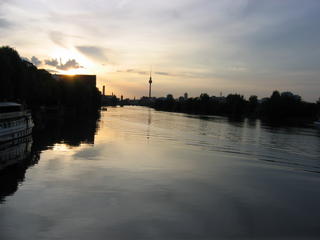#37 - Yesterday's Gowns & All Tomorrow's Parties



Hi there. Sorry it's been so long. Jeez. This is my first post since....last year.
I know that sounds weirdly confessional. "Hail Mary, full of Grace. Father, it's been 13 months since my last blog entry."
In their way, blogs aren't unlike confession booths.
In that spirit, I will further confess that while I've been listening to vast amounts of music over the last year, it really hasn't been moving me---thus, there hasn't been anything much for me to post about. My friend Charles says (diplomatically, of course) that the problem might be me and not be the music.
"You might just be depressed," he says.
Okay, sure. But a lack of compelling music may be a big part of what I'm depressed about. That and the usual stuff about the government, the war(s), corporate agribusiness, etc.
There is also the possibility I've finally reached that dreaded moment others reach in their mid-to-late twenties, where NOTHING new seems nearly as good as the music you loved in high school and college. The awesome soundtrack to your awesome coming of age: getting drunk for the first time (and second, and third), discovering various drugs, falling into bed with attractive people harboring only the faintest expectations that it will evolve into a "relationship."
This was never my situation. My school years were a period of awkwardness and discomfort. When alcohol, drugs, and/or sex did appear, rarely, they generally created anxiety and guilt that outshouted any lasting pleasure.
So I don't fetishize the music of the mid-to-late '80s and early '90s above any other periods. And yet: Every other fucking record I've put on in the last year seems to be a pale Xerox of some '80s rock act.
But something happened last weekend that proved me wrong about my taste for '80s-'90s nostalgia and cured me of my general malaise. Somewhat.
All Tomorrow's Parties are a bunch of British promoters who have been hosting music festivals for a few years now. They made their name staging events at downmarket holiday resorts in the U.K., where people can rent rooms and spend a weekend swimming, playing mini-golf and fornicating in between seeing esoteric bands. The idea is like the record shop in Nick Hornby's High Fidelity turned into a sleepaway camp. (This same comparison was made by a guy on NPR. It might have been a coincidence, but I'm not so sure. Music writers are all thieves.)
ATP's New York debut was held at Kutsher's, the old Borscht Belt resort in the Catskill mountains. That's where my Queens homies were dragged to for long weekends to spend quality time with their bubbas and zadies (ie, grandparents) during the dog days of summers back in the '80s. Barry Klein and Robbie Berkeley bitched about it endlessly. But while Kutsher's might be hell for a disaffected teenager stuck with their family---when they'd rather be smoking cigarettes behind dumpsters on Union Turnpike with their hoodlum friends in the hope that Judy Greenblatt would slip out of her house and grace the alleyway with her breasts and radiance---Kutsher's was near heaven for a slightly overweight 30-something hoping to reconnect with what had been until recently an all-consuming love affair with music.
I left Queens in a Zip car straight from work at day care Friday (yes, I'm still working there). I figured the fairy dust and turquoise paint that the four-year-olds splattered my hair with during art could be shampooed out later---although it later struck me as such a festive touch, I left it in.
A word about the accommodations at All Tomorrow's Parties: Stanky. Another word: crumbling. Did I care? Nah, not much. Because I bought my ticket late, I was stuck in the Raleigh hotel, the event's sister-site, another Borscht Belt resort whose heyday had come and gone: Huge chandelier, gold wallpaper, mirrors and glass-topped coffee tables around the lobby. A shuttered snack shop called Scruples, shelves emptied but for 3 bottles of orange Snapple. A pool and a sauna; both locked. Outside were crumbling cement ping-pong tables without nets, basketball and shuffleboard courts cracked and clotted with weeds. Out front was a sign that said PARKING FOR HATZOLAH PARAMEDICS ONLY. You sensed that many old Jews departed to see the Almighty from this very hotel.
It certainly smelled like it. In the Sammy Davis Wing, where I was staying, a young black housekeeper inexplicably sprayed puffs of Windex into the air as she drifted down the hall---the scent of ammonia apparently preferable to the scent it was masking. My room, which to its credit had a fairly new plastic mezuzah nailed onto the doorframe, reeked of mildew; the window frames were cracked and askew, and two of the three lamps had no bulbs. I later discovered there was no heat in the room---or the entire hotel, for that matter.
Why? Who knows? I couldn't find anyone who actually worked at the hotel to verify anything. The woman behind the desk, a tad on the slow side, explained that there were no managers; the personnel were all weekend temps.
It was like a remake of The Shining with Jack Nicholson's character played by Morey Amsterdam.
As it turns out, the place had officially closed a couple of years back, and was being operated as a sort of rental property for religious groups. In its way, I guess All Tomorrow's Parties is one.
Kutsher's, meanwhile, was still open for business as usual, although parts of the resort seem condemned (doorless rooms with collapsed ceilings were a tip-off), and it exists in a sort of early-60s time warp. Exhibit A was the Justine Cosmetics concession stand, which Justine's sister, Debra (who was filling in Saturday morning) said they'd been operating for 45 years. The women vaguely resembled drag queens, in their do's and heavy make-up, so they did not seem entirely out of place among the ATP crowd of aging punk rockers. But the product line---which included their own Putty and Lazy Girl brand cover-up and blush---wasn't moving with the crowd, and by Sunday the sisters had closed up shop, their transformational magic on hold until the Kutsher's old-schoolers return.
My own transformation began Friday night with the Meat Puppets, who played all of Meat Puppets II during an evening devoted to older bands playing classic albums from beginning to end. This is not a new idea; in fact, my last post mentioned Sonic Youth performing their magnificent Daydream Nation on the now-defunct McCarren Pool stage in Williamsburg. But for certain groups playing for certain audiences, it's a kinda brilliant idea.
I mean, if your emotional attachment to a group is rooted in hours, months, years spent listening to an album from top to bottom, why wouldn't you want that experience recreated live? I mean, I'm happy Cris Kirkwood is finally out of jail and back playing with his brother and getting his life together after years as the worst sort of drug casualty, and I hope they return to recording and rekindle their creative flame. But I can't imagine a better Meat Pups show than this one, during which the band (with some new dude replacing drummer Derrick Bostrom) played nothing new, just a fine recreation of II with a little extra guitar fireworks, tacking on the deliciously trippy title track of Up On The Sun and a couple of weird covers at the end--- a set mirroring cassette tapes made by thousands of fans around the world who appended the original 30-minute LP on one half of a 90-minute Maxell XLII with "Up On The Sun" and a few weird covers to fill out the side, which we then played until the tape oxide was stripped off as thoroughly as meat from the bones of dead rodent in the Meat Pup's Arizona desert backyard.
I've always hated the idea of living in the past musically --- it reeks, like the hotel room, of stasis, narrowmindedness, hopelessness, and death. But my guilt was erased by the shakily incandescent joy of these songs, whose greatness was only magnified by my history with them, and confirmed by the faces of 20-something trust fund indie kids who couldn't have anything like my history with the record but nevertheless were beaming like five-year-olds in an ice cream parlor. (They must all be working at latter-day dot.coms where the venture capital is still flowing; for a day-care center employee like myself, the cost of ATP represents my show-going allowance for the next two-plus months.)
My nostalgia reached its zenith on the final night: Bob Mould, finally fronting a full-on rock band again after years of solo acoustic gigs and ill-advised techno experiments. He ended his majestic set with a clutch of songs from Husker Du's New Day Rising, a record my 14-year-old self cherished even more than Meat Puppets II back in the '80s: the title track, "Celebrated Summer," and "I Apologize" --- plus "Makes No Sense At All" from the subsequent Flip Your Wig.
These were songs I screamed---usually under my breath, but still---while slogging down 73rd Avenue to and from Ryan Junior High School, in a pubescent attempt to emulate Mould's jock-on-bad-acid howl. There was something in that shredded yell, which reached its apex on the Husker's terrifying version of the Byrds "Eight Miles High" (which he didn't play, alas) that seemed to epitomize all the horrors of growing up: the failures, the self-loathing, the fears of being exposed as a freak, a fool, a fag. It was for me the ultimate expression of rock as a transcendent force, and hearing it live in its full-band glory for the very first time in the low-ceilinged catering hall at Kutsher's, which you could imagine was some basement hardcore club if you squinted your eyes, sent me into pogoing spasms like I was hurling myself around my Queens bedroom in 1985. At one point, I slammed into a mirrored wall on one side of the room and felt the glass crunch under my weight. But the room was pitch black, the music deafening, and noone seemed to notice. So I just pogoed my ass over to the other side of the room like nothing had happened.
There was new music at All Tomorrow's Parties, too. I had my mind fully blown by Lightning Bolt, who admittedly have been around for 10 years in one form or another. But they still represent a new generation, and they made me rethink my pooh-poohing of the current noise-rock scene that they represent.
When the group began their set, as they always do, on the floor in the middle of the audience, a circle of fans closed around them, and the only way to "see" the band was in the fish-eye reflection of a circular driveway mirror the group mounted on a stand over their amps. From the rear of the room, it looked like a cute little hardcore show circa 1985, with kids crowd-surfing and punching their fists in the air. But when I pushed my way into the circle, Brian Chippendale's drumming sucked me into a cybernetic engine; my fist became a piston alongside all the others, and my shouts, too, became an integral element, marking the thrill of every time-signature shift. I can see why Bjork wanted a piece of this in her music (see "The Dull Flame of Desire," from Volta), although Chippendale's drumming magick is contextual, and even hearing him play solo live this past summer (opening for Boredoms at Terminal 5) didn't prepare me for what he does with Lightning Bolt. I may never listen to one of their records all the way through. But I left their set reaffirming what, until last year, I'd always believed --- that music can always be made new again.
Even by musicians playing old music, as My Bloody Valentine proved. I'd seen the group a couple of times in the '90s, and they were mind-crushingly loud. But their headlining set at ATP was like being a subject in a science experiment involving the effect of ultra-high-volume sound waves on human emotion and musculature.
I chose to use my prescription NRR 25dB earplugs (I've had mild tinnitus ever since around the time I first saw MBV) instead of the free Howard Leight NRR 27dB earplugs they distributed at the door, and I'm not sure I chose right. The show ended with "You Made Me Realize," the majestic song from their debut EP, capped with a 17 minute noise crescendo that pulsed through the Starlight Ballroom like some alien energy form --- it was like being transported into the cloudy, throbbing, brain-sucking planet-space in the 1972 Tarkovsky film Solaris.
In the movie, Solaris was able to draw out your memories of loved ones and literally make those memories flesh; it was a sort of nostalgia machine that allowed you to relive cherished moments over and over again.
I thought about this as the sound waves roared over me.
Occasionally I opened my eyes and looked around the room. About half the audience had their eyes closed; the other half were staring at the stage bug-eyed, like deers in headlights. I fingered my earplugs and moved them around a bit, which modulated the sound; if I did it rhythmically, it was like superimposing a new musical structure on the drone entering my head. It was kind of like dancing, and kind of like being a remixer, using the earplug posts and my earlobes as knobs and faders to control the sound.
Eventually the drone ended, the band left the stage, the lights went up, and the fans stumbled out of the Stardust Ballroom.
I looked for a familiar face, but couldn't find one. I wondered if Holly was here --- and if not, why not?
But as I walked out into the damp, early-morning Catskill mountain air, I felt connected again in a way I haven't for quite a while. In the face of everything, devoting ones life to the pursuit and exploration and celebration of beauty seems a reasonably worthy path to take, I thought. People drifted up Kutsher's dirt road towards the parking lot; there was remarkably little conversation. Headlights lit up the woods. And with my tinnitus humming pleasantly, I looked forward to getting home, and getting back to work.








